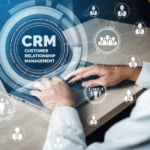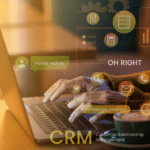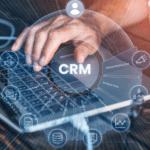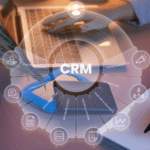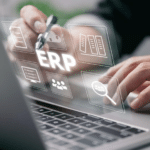Microsoft Accounting Software solutions stand as powerful tools tailored to streamline financial management processes, enhance accuracy, and empower businesses with real-time insights into their financial health. Leveraging the robust capabilities of Microsoft’s technology ecosystem, these software solutions offer comprehensive features to manage accounts, track expenses, generate reports, and ensure compliance. In this article, we delve into the features, benefits, and considerations of Microsoft Accounting Software solutions, shedding light on their potential to revolutionize financial management practices and drive business success.
Understanding Microsoft Accounting Software Solutions
**1. Cloud-Based Accessibility
- Microsoft Accounting Software solutions are built on a cloud-based architecture, providing businesses with anytime, anywhere access to financial data and applications. This cloud-native approach ensures flexibility, scalability, and security, enabling businesses to adapt to evolving financial requirements and market dynamics.
**2. Comprehensive Functionality
- Microsoft Accounting Software solutions offer a comprehensive suite of modules covering core financial management functions such as general ledger, accounts payable, accounts receivable, billing, invoicing, expense tracking, and financial reporting. This integrated functionality allows businesses to streamline financial processes, improve accuracy, and make data-driven decisions.
**3. Integration with Microsoft Ecosystem
- Microsoft Accounting Software solutions seamlessly integrate with other Microsoft products and services, including Office 365, Dynamics 365, Power BI, and Azure. This integration enables businesses to leverage existing Microsoft investments, enhance collaboration, and access advanced analytics and AI-driven insights to optimize financial performance.
**4. Scalability and Customization
- Microsoft Accounting Software solutions are highly scalable and customizable, allowing businesses to tailor the system to their unique needs and scale as they grow. Whether it’s adding new users, expanding into new markets, or customizing workflows and reports, businesses can adapt the software to meet evolving financial requirements and industry-specific needs.
Key Features of Microsoft Accounting Software Solutions
**1. General Ledger and Chart of Accounts
- Microsoft Accounting Software solutions provide robust general ledger capabilities, allowing businesses to record financial transactions, maintain a chart of accounts, and generate accurate financial statements. With features for journal entries, account reconciliations, and closing procedures, businesses can ensure financial accuracy and compliance.
**2. Accounts Payable and Accounts Receivable
- Microsoft Accounting Software solutions streamline accounts payable and accounts receivable processes, enabling businesses to manage vendor invoices, payments, and supplier relationships efficiently. Similarly, businesses can track customer invoices, payments, and collections, improving cash flow management and customer satisfaction.
**3. Expense Tracking and Reporting
- Microsoft Accounting Software solutions offer tools for tracking expenses, managing budgets, and generating insightful reports to monitor financial performance. By categorizing expenses, analyzing spending patterns, and comparing budgeted vs. actual costs, businesses can identify cost-saving opportunities, optimize spending, and improve profitability.
**4. Integration with Banking and Tax Services
- Microsoft Accounting Software solutions integrate with banking and tax services, allowing businesses to reconcile bank transactions, automate bank feeds, and streamline tax compliance processes. With features for electronic payments, tax calculations, and tax reporting, businesses can minimize manual errors and ensure regulatory compliance.
Benefits of Microsoft Accounting Software Solutions
**1. Efficiency and Productivity
- Microsoft Accounting Software solutions streamline financial processes, automate repetitive tasks, and improve workflow efficiency, enabling businesses to focus on strategic initiatives that drive growth and innovation. By eliminating manual data entry and reconciliation, businesses can save time, reduce errors, and increase productivity.
**2. Data Accuracy and Compliance
- Microsoft Accounting Software solutions enhance data accuracy and compliance by centralizing financial data, automating calculations, and ensuring adherence to regulatory requirements. With real-time visibility into financial transactions and audit trails, businesses can maintain accurate records, mitigate risks, and demonstrate compliance to stakeholders.
**3. Decision-Making and Insights
- Microsoft Accounting Software solutions provide businesses with actionable insights and analytics to support data-driven decision-making. By analyzing financial trends, forecasting cash flow, and monitoring key performance indicators (KPIs), businesses can identify opportunities, mitigate risks, and optimize financial strategies for better business outcomes.
**4. Scalability and Growth
- Microsoft Accounting Software solutions offer scalability and flexibility to support the growth and evolution of businesses, allowing them to add users, expand into new markets, and adapt to changing financial requirements. With cloud-based deployment options, businesses can scale resources on-demand and stay agile in a dynamic business environment.
Considerations for Implementing Microsoft Accounting Software Solutions
**1. Alignment with Business Needs
- Businesses should align the selection and implementation of Microsoft Accounting Software solutions with their unique business needs, goals, and priorities. The software should meet the organization’s financial requirements, industry-specific regulations, and scalability requirements to support future growth.
**2. User Adoption and Training
- Effective user adoption and training are essential for maximizing the benefits of Microsoft Accounting Software solutions. Businesses should invest in comprehensive training programs, user-friendly interfaces, and ongoing support to ensure that employees can effectively use the software and leverage its full capabilities.
**3. Integration with Existing Systems
- Microsoft Accounting Software solutions should seamlessly integrate with existing systems and applications, such as CRM software, payroll systems, and third-party financial services. Integration ensures data consistency, interoperability, and a unified view of financial information across the organization’s IT ecosystem.
**4. Security and Data Privacy
- Businesses must prioritize security and data privacy when implementing Microsoft Accounting Software solutions, especially when storing sensitive financial information in the cloud. The software should comply with industry standards and regulations for data security, encryption, access controls, and data privacy to protect against cyber threats and breaches.
Conclusion: Optimizing Financial Management with Microsoft Accounting Software Solutions
In conclusion, Microsoft Accounting Software solutions offer businesses a powerful platform for streamlining financial management processes, enhancing accuracy, and driving business growth. By leveraging the robust capabilities of Microsoft’s technology ecosystem, businesses can streamline financial workflows, improve decision-making, and achieve better financial outcomes. With careful consideration of key features, benefits, and implementation considerations, businesses can harness the power of Microsoft Accounting Software solutions to optimize financial management practices, drive efficiency, and stay competitive in today’s fast-paced business landscape.

